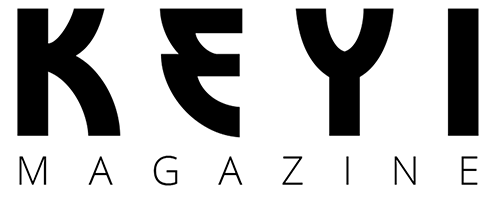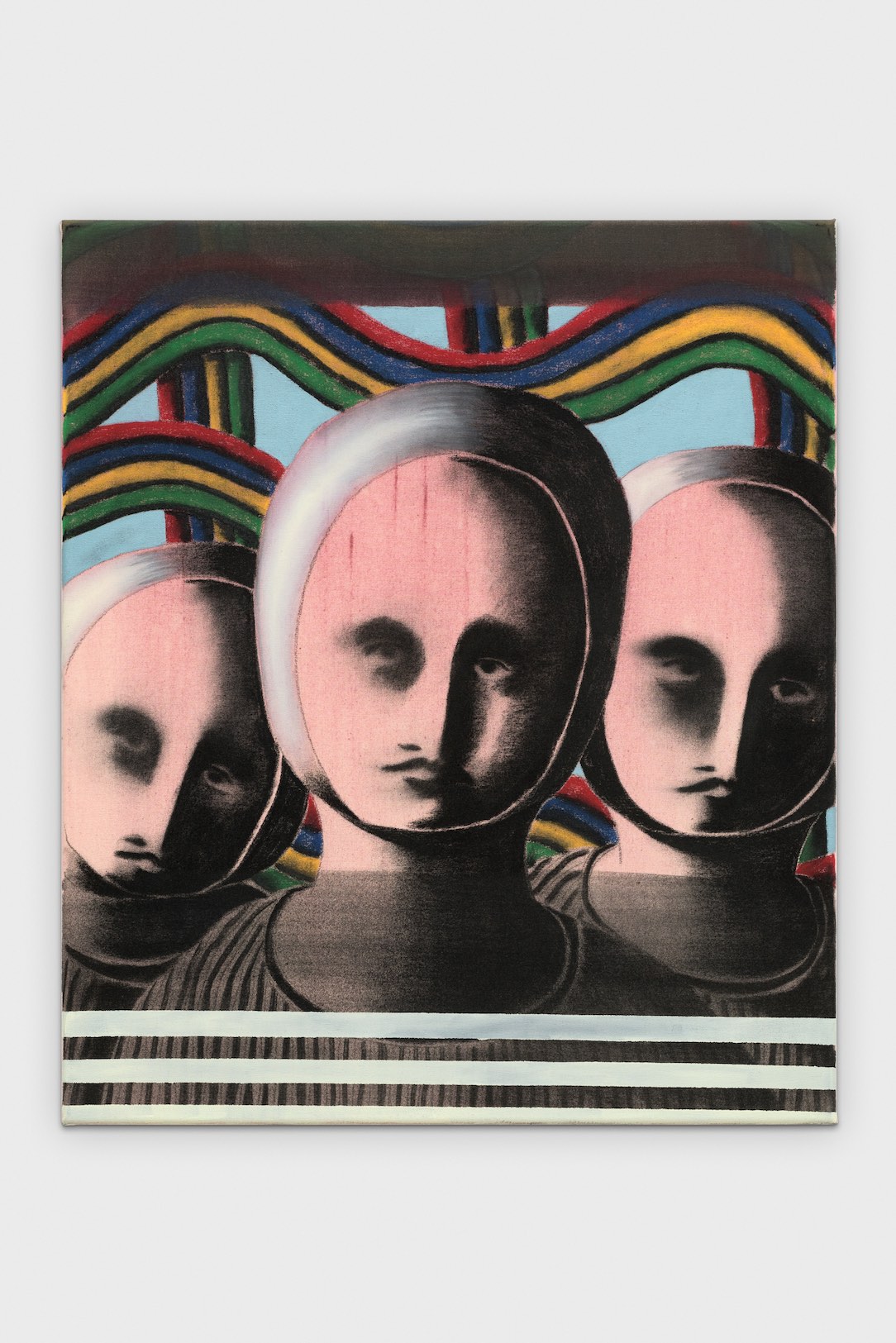
Gallery Anton Janizewski opened its first booth at Artissima with a bold statement. The Berlin-based gallery entered the New Entries section of the Italian art fair for the first time this year. The artist they chose to present, Ferdinand Dölberg, class 1998, made his mission to question social structures in all its nuances and to defy our basic concept of rules.
Dölberg uses a conventional medium – painting – but challenges it from within. What strikes at first is the choice of his supports. A school blackboard hosts the first painting of the booth, while the second big painting is created within a wooden framed modular sliding system. His protagonists are classic, yet so peculiar. Crowds of people fill his canvases, but show no empathy nor any emotion. They don’t seem to have any gender, and it’s difficult to specify their identity. Nevertheless, they are rebelling to their frames and their scenarios.
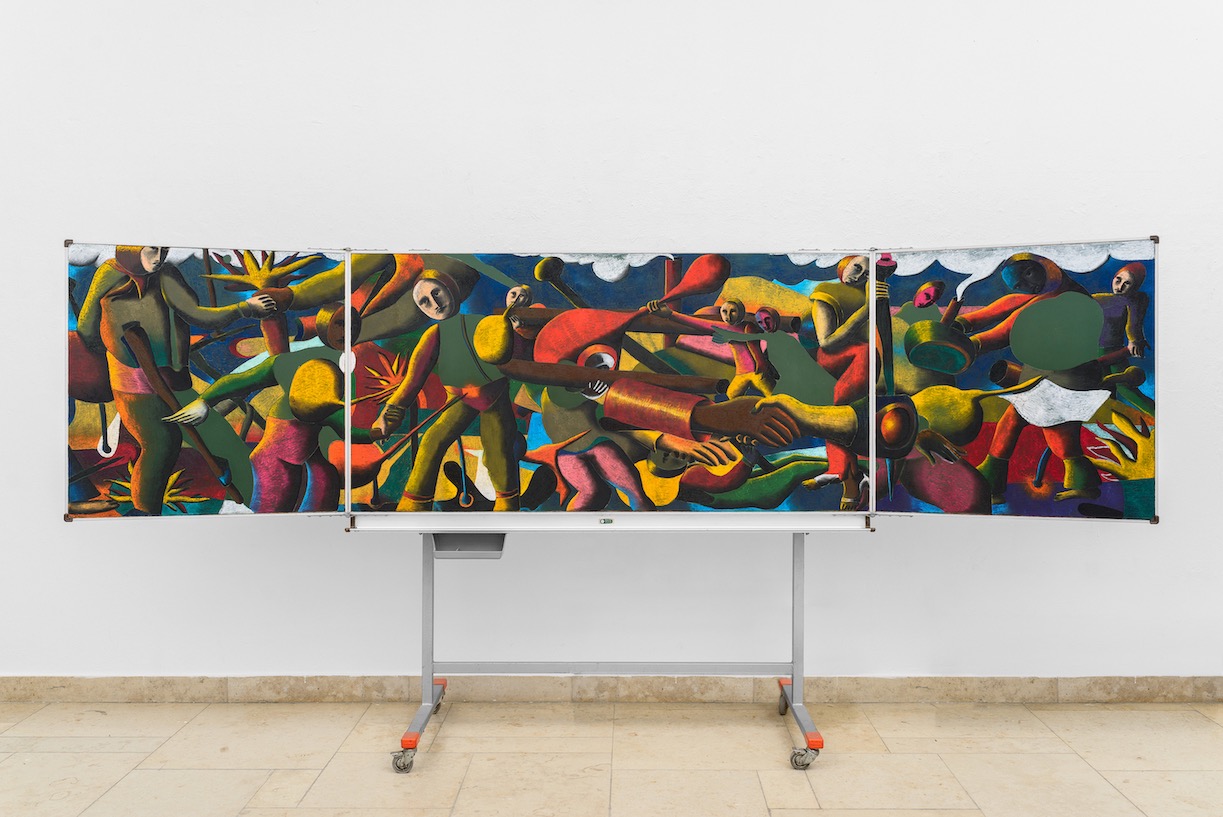
The first work is titled Farbigkeit impliziert nicht direkt was du sehen magst. Bitte Widersetzen! meaning “Colour does not directly imply what you would like to see. Please resist!” and feels like an invitation to protest. The people filling the blackboard move against each other in a flow of intents that is not clear yet.
The question remains – what are they enduring? The gallerist gives us a hint: they are probably fighting against the place where the frame comes from – the school system. His input makes us realize that maybe the reason we feel stuck and frustrated it’s this societal structure. The artist does not stop there, and decides to play with history too. The structure of his paintings reminds us of a tryptic or an altarpiece, and we notice for the first time another big protagonist of his drawings: the white flag.
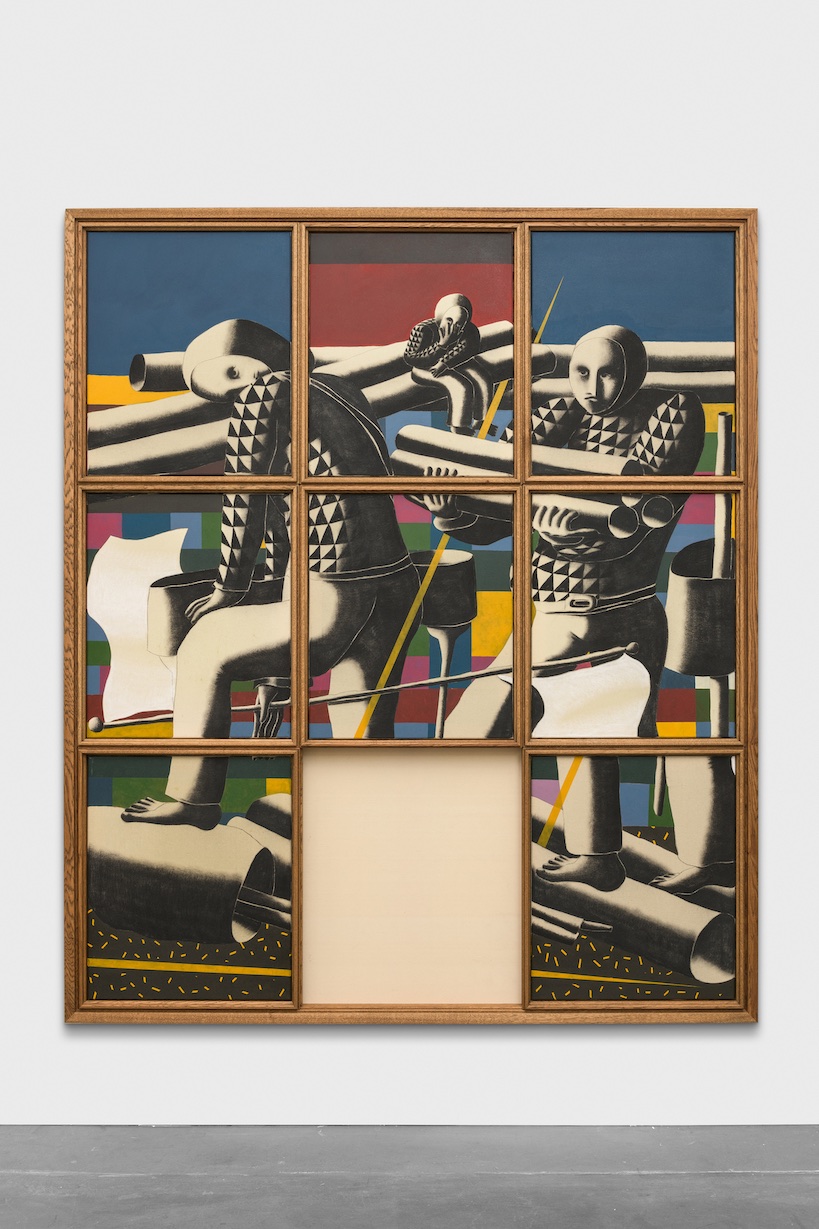
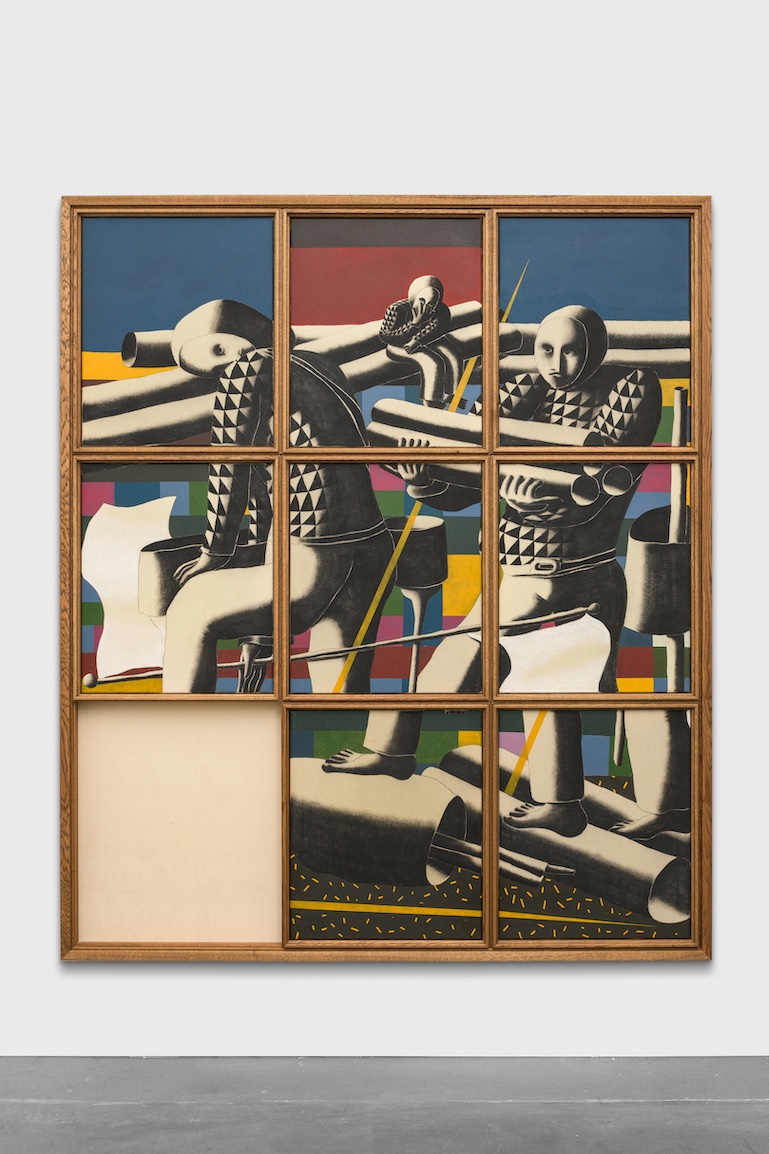
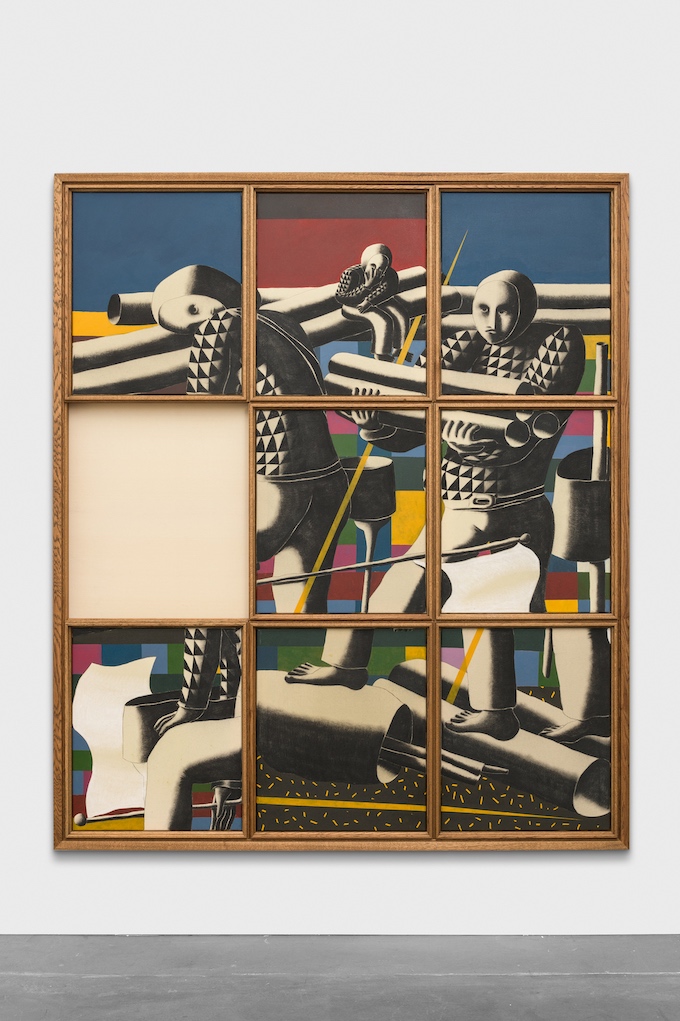
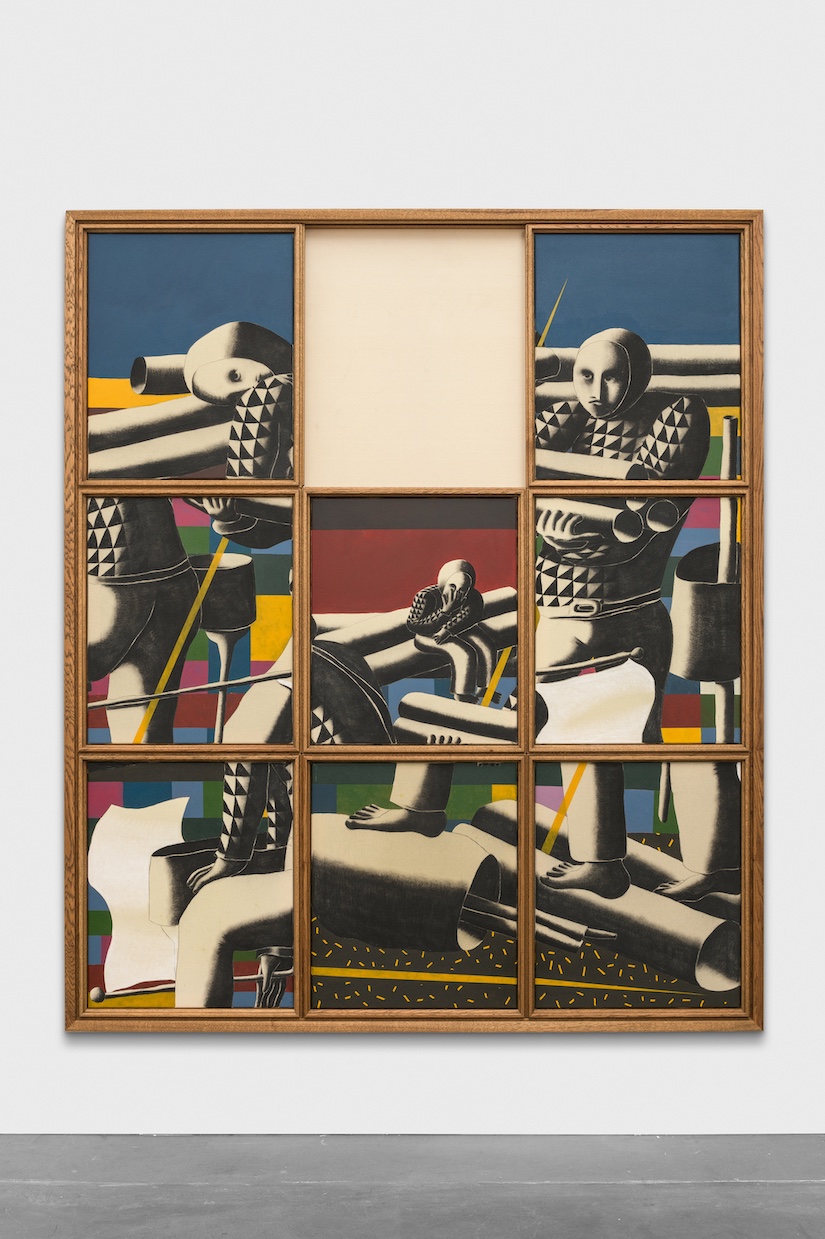
What is a white flag? A symbol of peace for sure, but also of resignation and defeat. The gallerist leaves this interpretation open for us and takes us directly to the next artwork. The second piece, Two flags and someone who seems desperate, questions the other big elephant in the room of our lives: work. Work is what we prepare for since childhood, what we need to do to sustain ourselves and our free time for most of our lives. The type of work is also an important thing to question: are we doing the job we wanted? If so, are we enjoying it? If not, why didn’t we have enough talent to succeed? Was it bad luck, societal status, missed opportunities? These questions move in our mind as the pieces of this modular painting and we start becoming as restless as the figures in Dölberg’s paintings.
Many other questions come to mind, and we begin to wonder if our reality might actually be way more worrying than theirs. The sense of alienation spreads as an epidemic, from his paintings to us, but also opens up a gate to imagine alternate realities. Negativity always leaves some room for new possibilities.
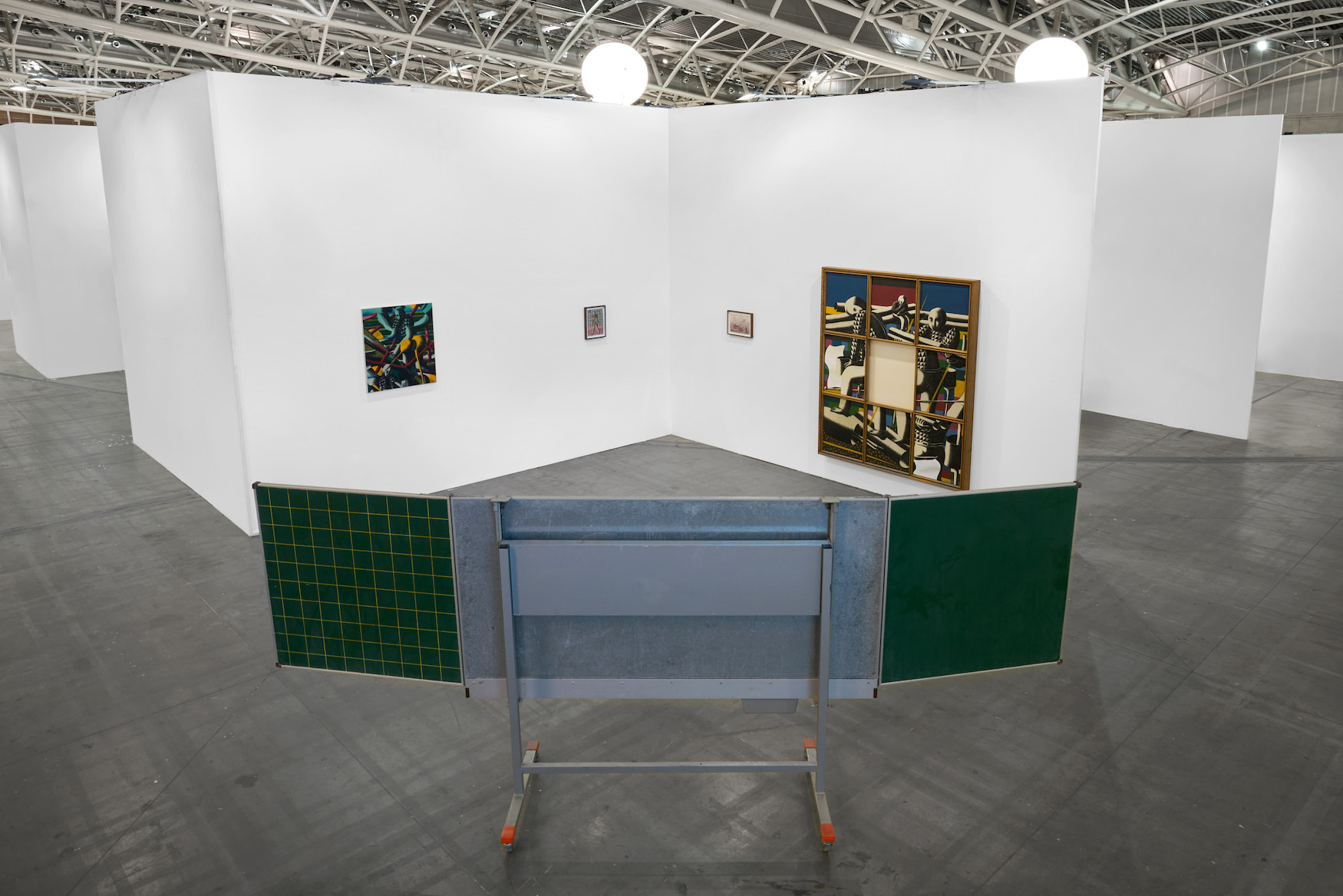
In his 2023 exhibition with the gallery, titled Am Ende die Leerstelle (“At the End, the Empty Space”), this parallel reality takes the form of a meditation on death: negotiated as another side from which we are unable to connect with our lost loved ones, the artist refers to the troubling image of his grandfather repeating to him “If I am no longer there, then you are no longer there either”, turning death into a logical problem for us to solve. Again, we are questioning the world we live in, and our cultural approach to it.


